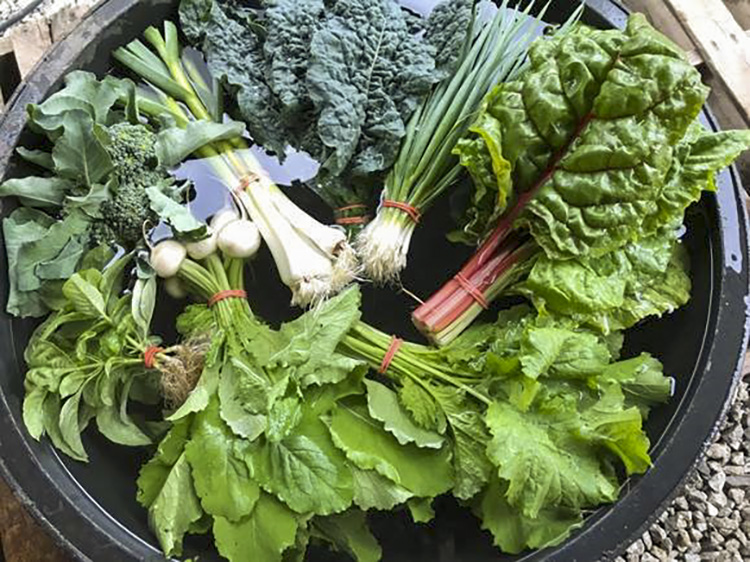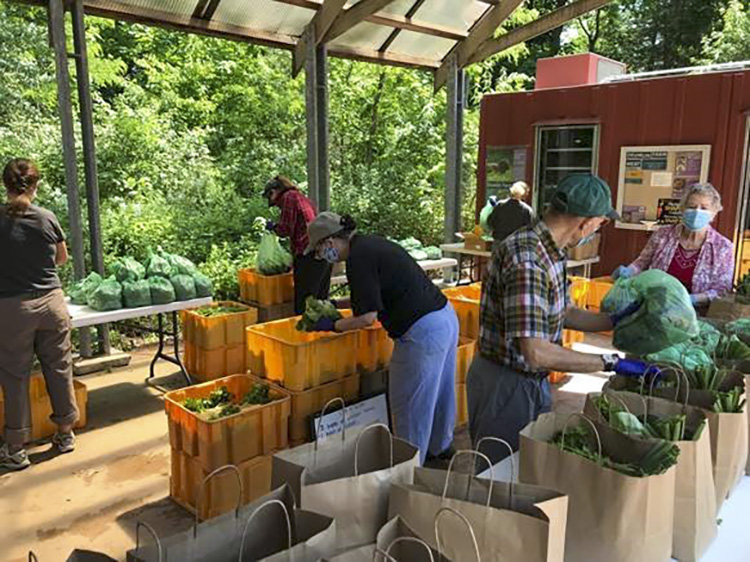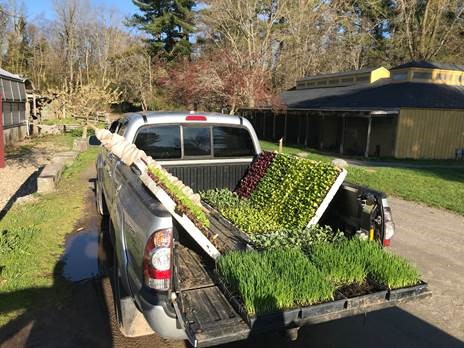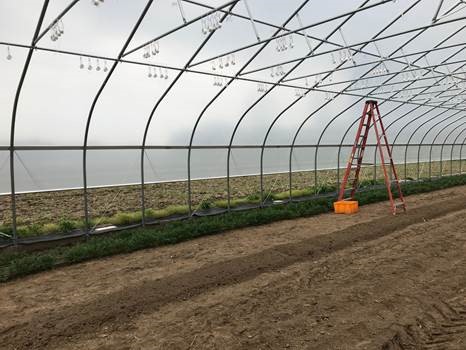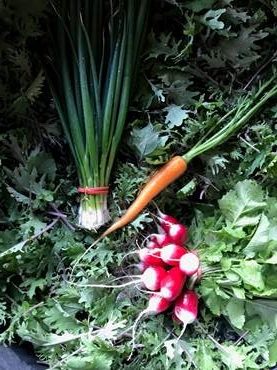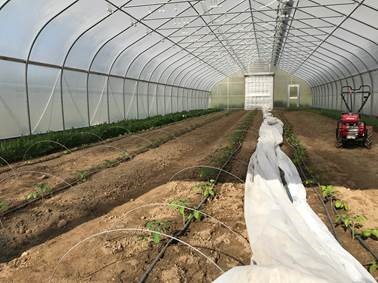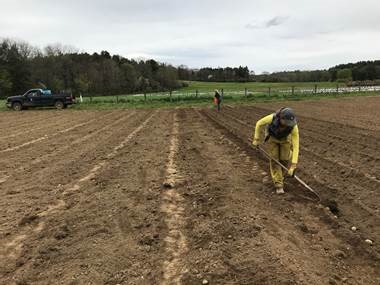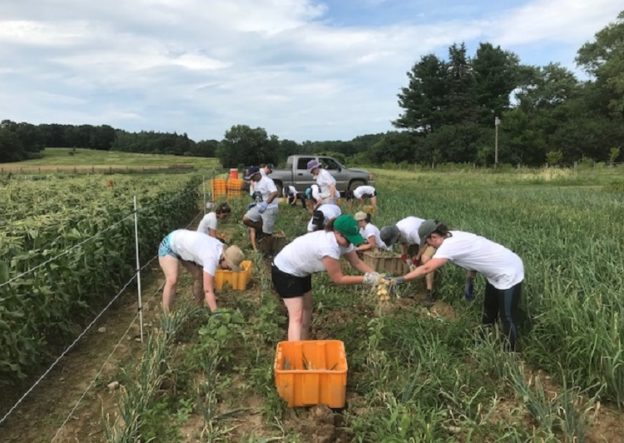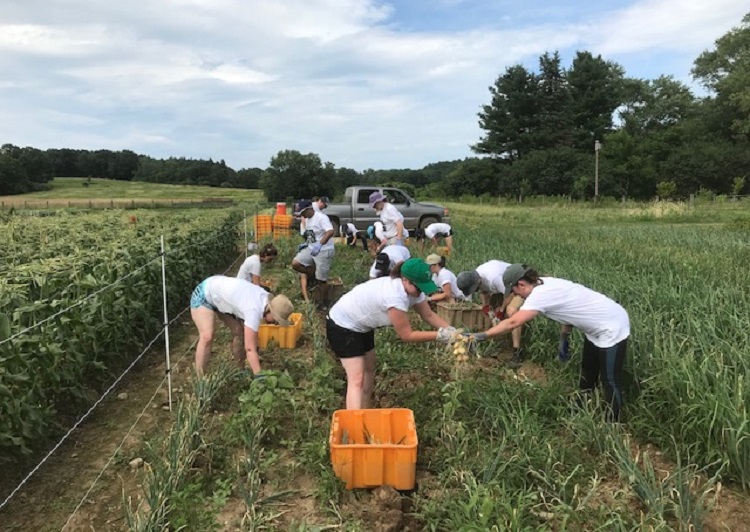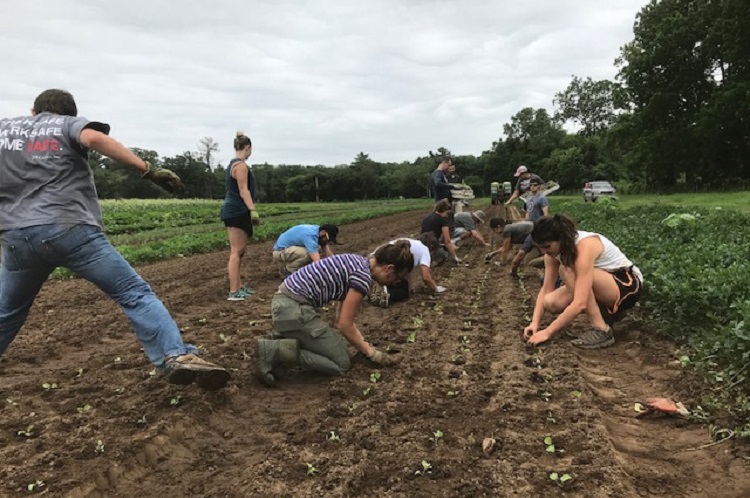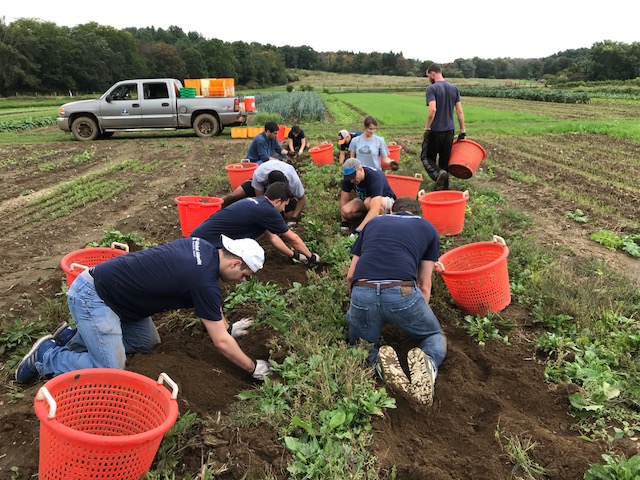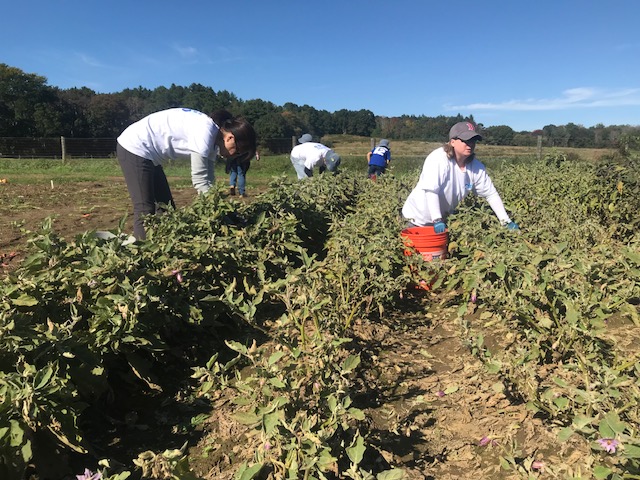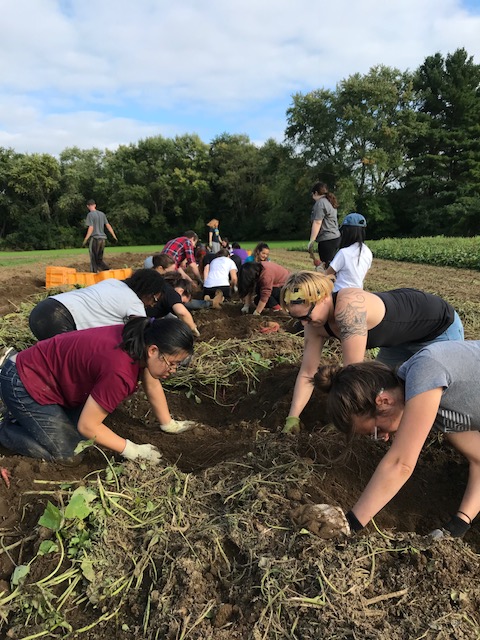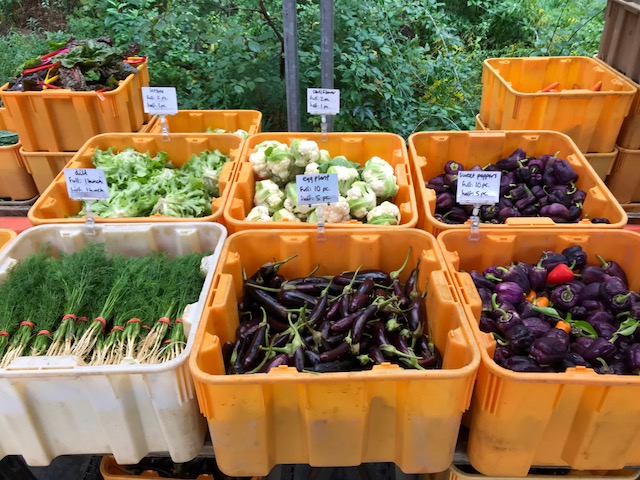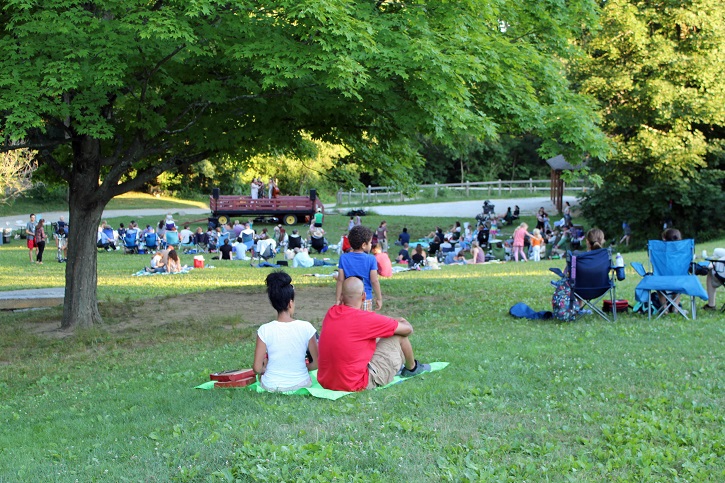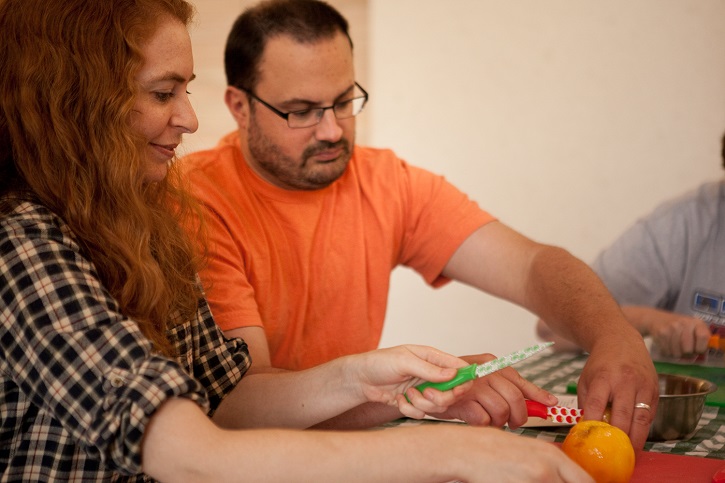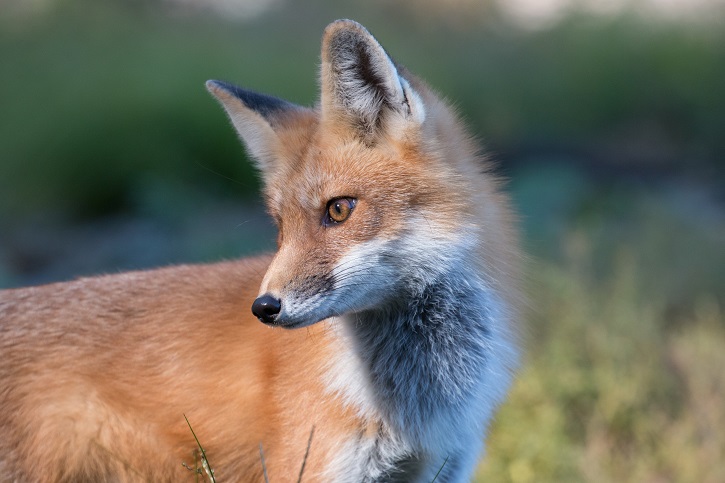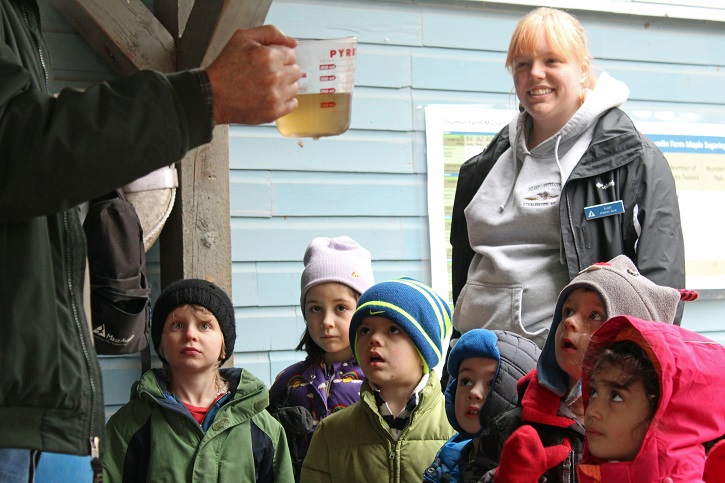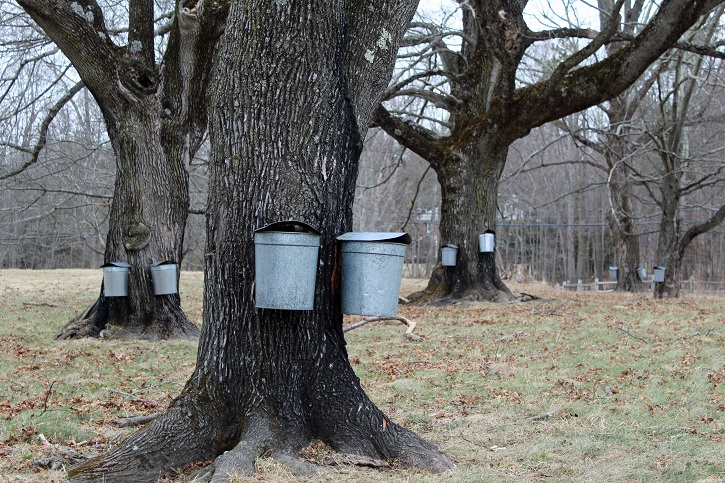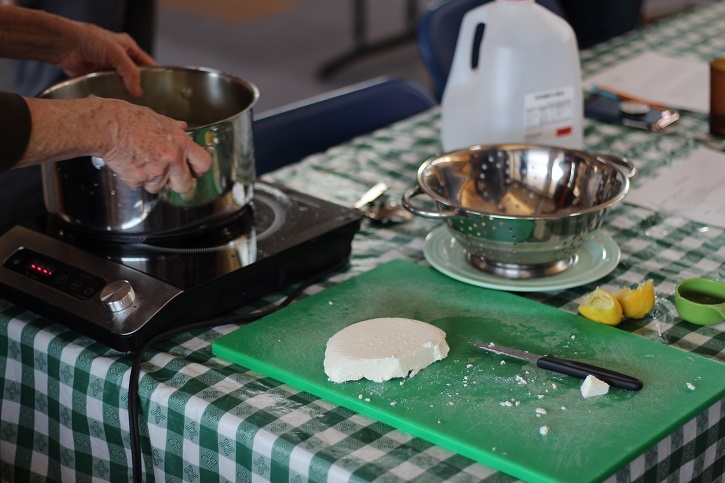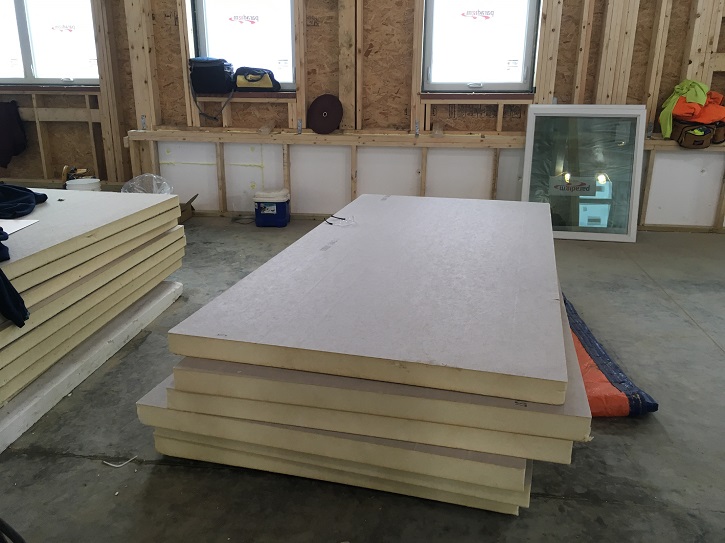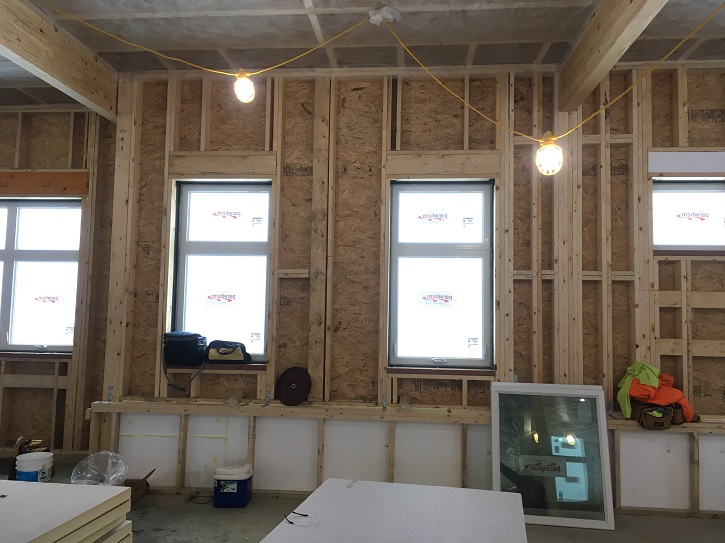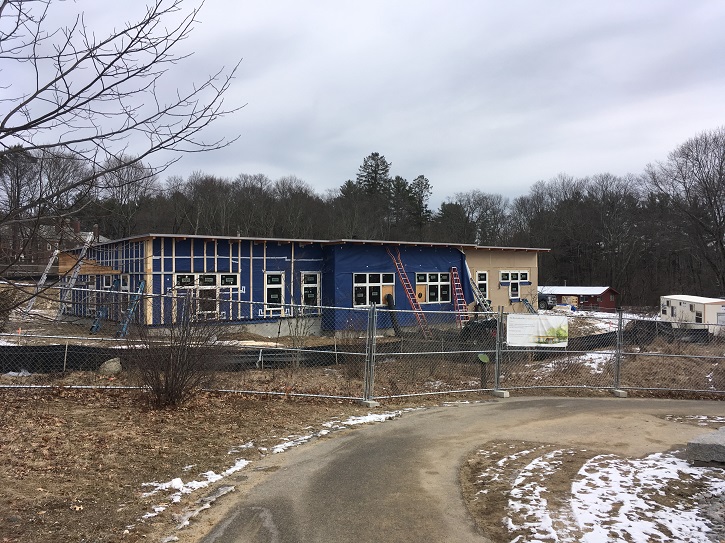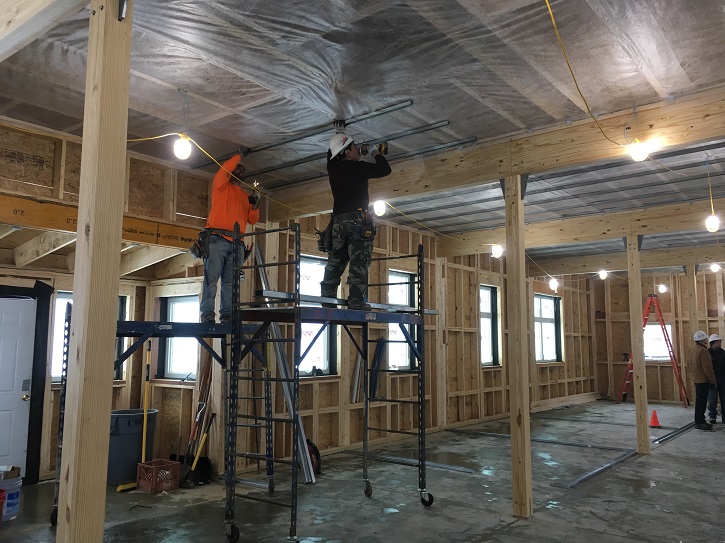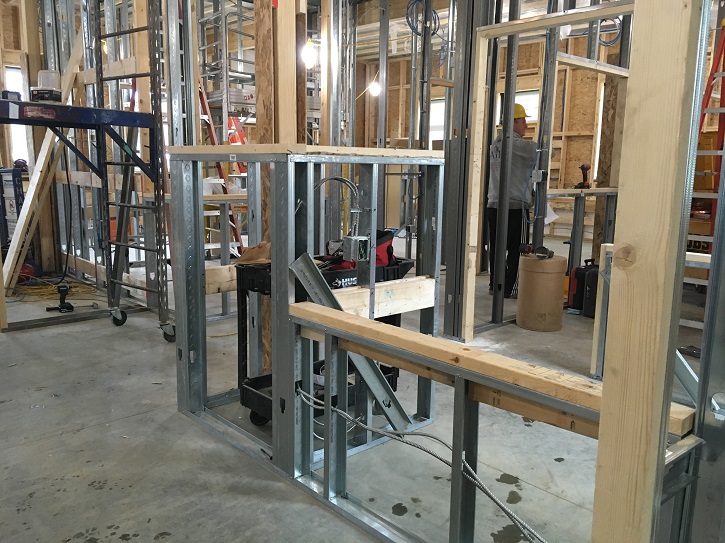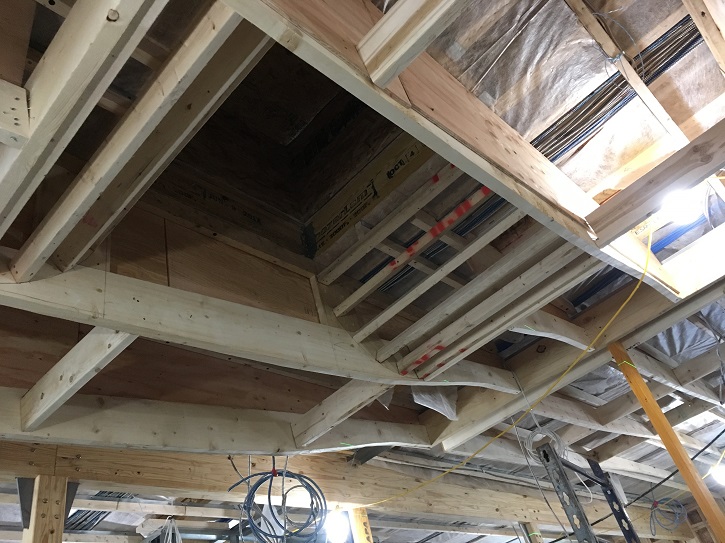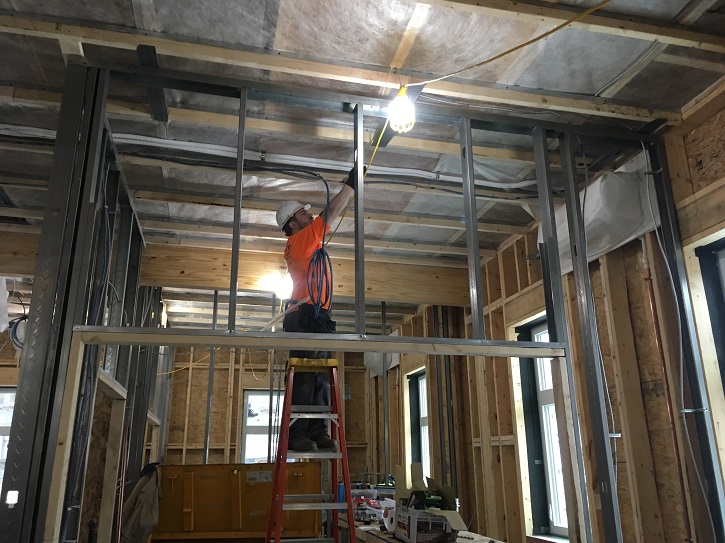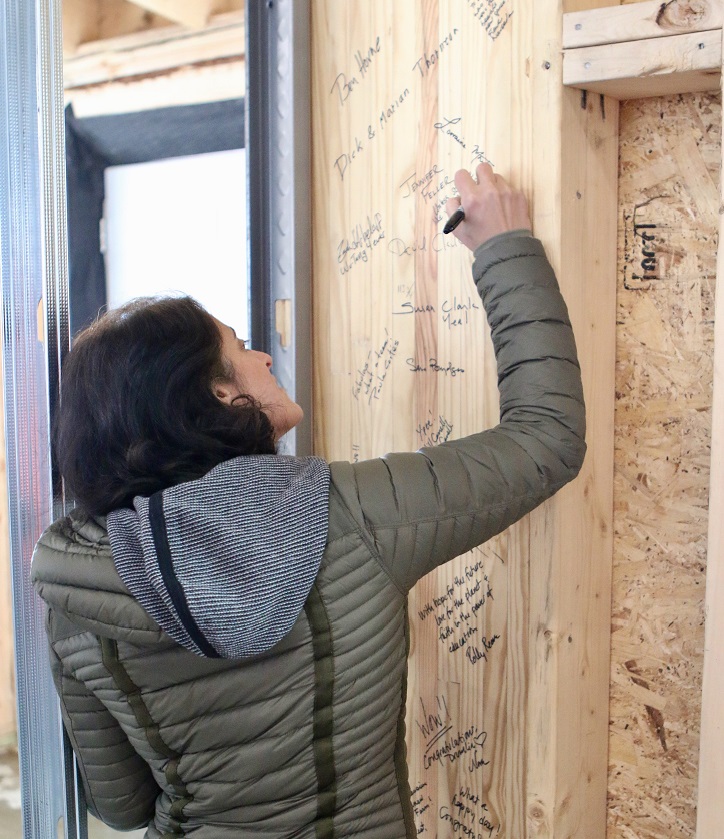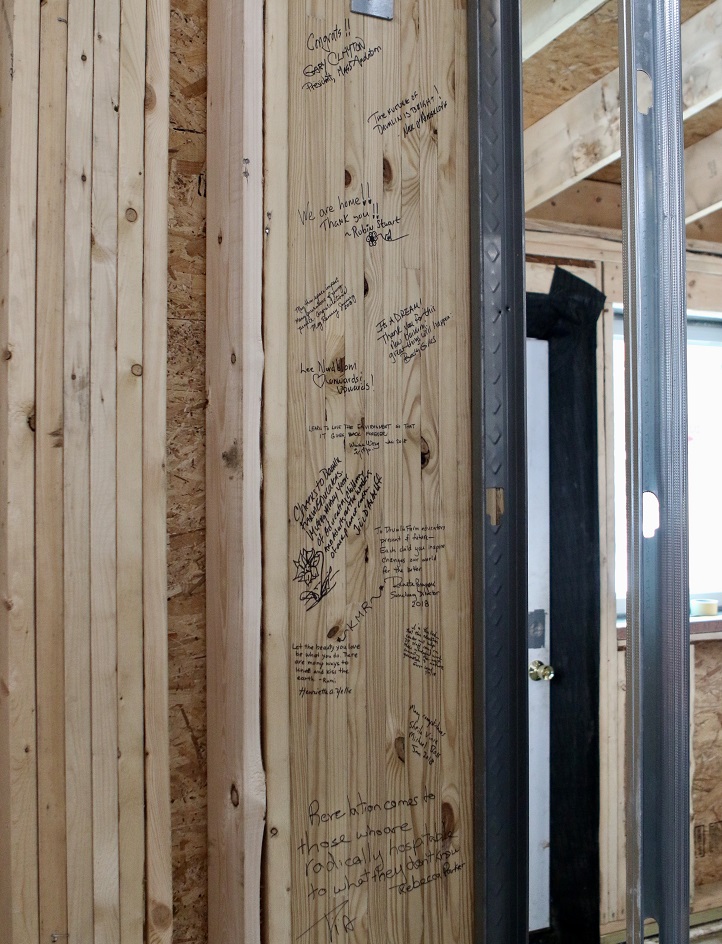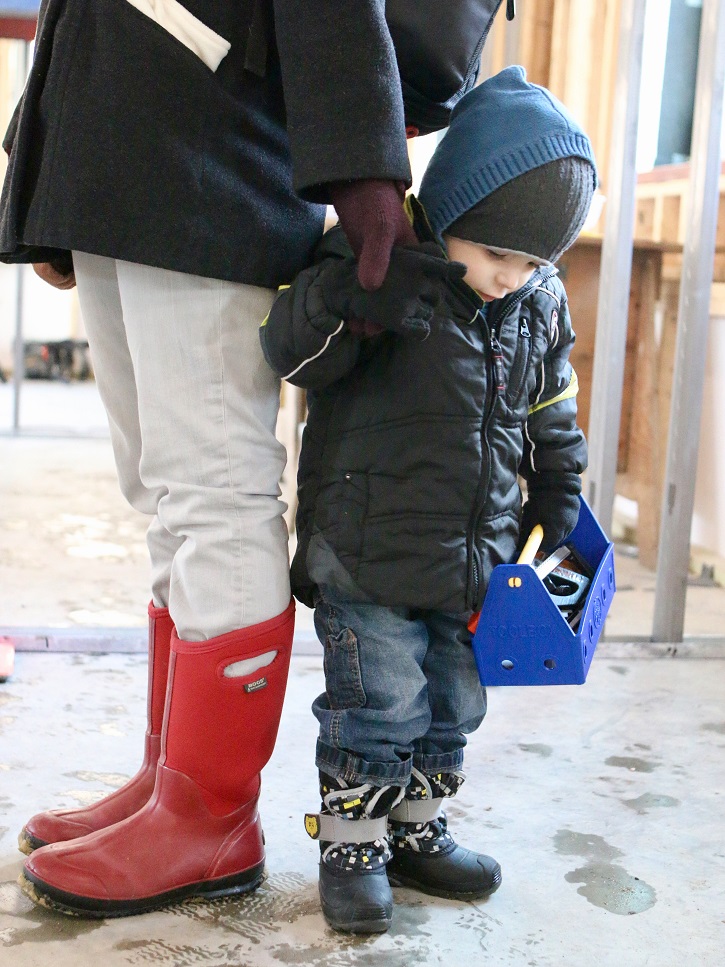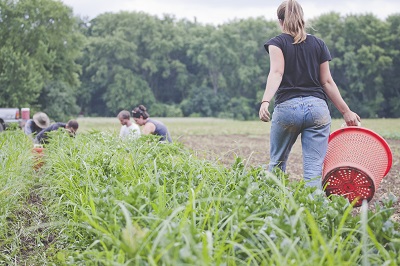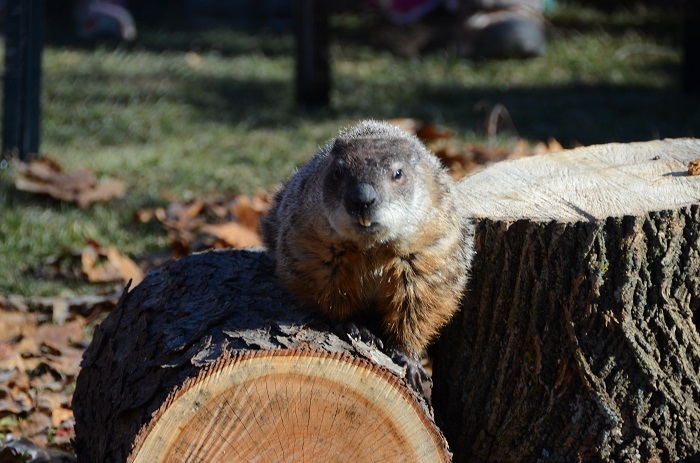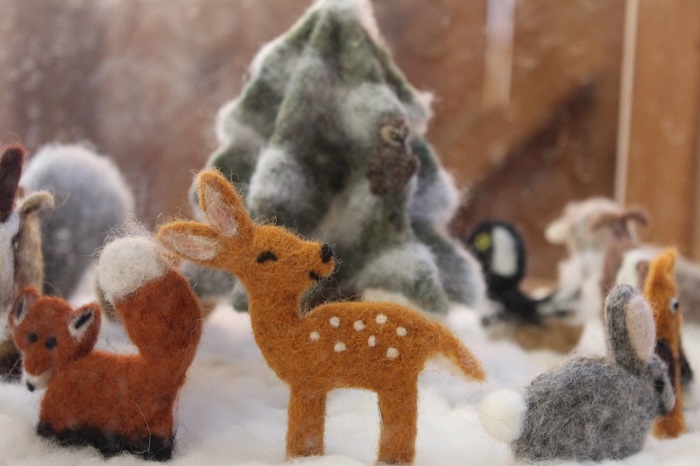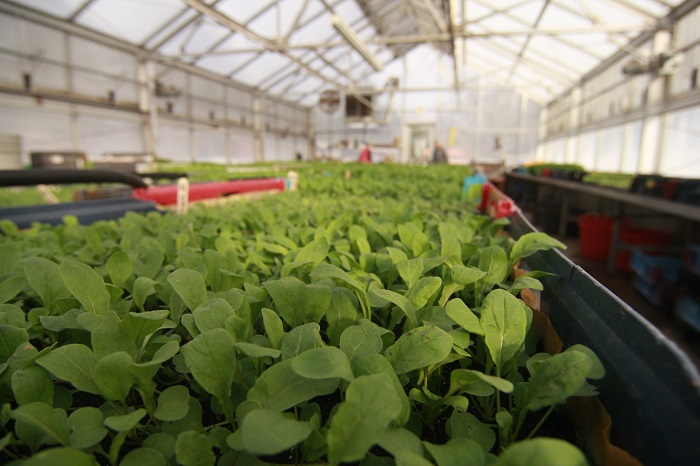Strawberries, snap peas, garlic scapes, the solstice, and Father’s Day. Every year, the confluence of these crops and events also coincides with our annual pick-your-own strawberries weekend. The hot and dry weather has favored the strawberry crop, but COVID canceled our plans to invite the public into the patch.
Instead, small groups of volunteers helped us pick berries on Wednesday and Friday of last week. Thanks to them, all spring CSA shareholders received a pint of strawberries on Wednesday afternoon, and on Saturday morning, we took over 300 pints to market! The few flats we didn’t sell there we donated to Food For Free on the way home.
This week marks the opening of the summer CSA program, and we look forward to once again working with volunteers to pick berries for members and for market-goers. Many thanks to volunteer coordinator Pam Sowizral for organizing the harvesters, and thanks to all who have pitched in so far.
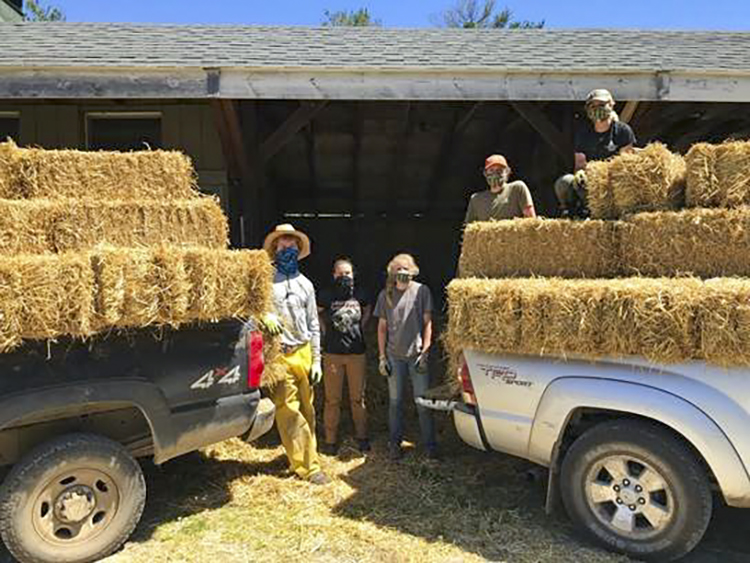
At the beginning of last week, before temperatures hit the 90s, we raced to pound tomato stakes and spread straw mulch. Above, from left to right, Greg Poelker-McKee, Jen Healy, Paige Taylor, Margot Becker, and Margaret Hayes have just loaded dozens of fifty-pound bales for transport to the main tomato patch. Nobody enjoys getting itchy straw in their masks, shoes, and pockets, but it’s motivating to know that the process would be far more uncomfortable in high heat and humidity.
The team made quick work of the project, and now we’re keeping an eye on the forecast to find a cooler day to stake and mulch the second succession of field tomatoes. We planted those last Thursday afternoon, and the deer quickly found them and ate an entire bed! Deer pressure seems to be heavier than in years past, and their current favorites are peas, lettuce, tomatoes, and beets.
In other wildlife news, at least three Killdeer nests have hatched-out and we’re plowing around two others where the adults are still sitting on eggs. The Red-tailed Hawk keeps trying to eat the little ones, but the parents are as protective of them as they are of the nests.
On Saturday afternoon, we planted a half-acre of pumpkins—the last of the big summer planting projects. Now the days are getting shorter, and the remaining large planting jobs are fall brassicas: kale, collards, storage cabbage, and kohlrabi. Later this week, we’ll transplant acorn squash and Brussels sprouts to the field. Acorn squash matures quickly and is susceptible to sunscald, so we seed it two weeks later than other winter squash.
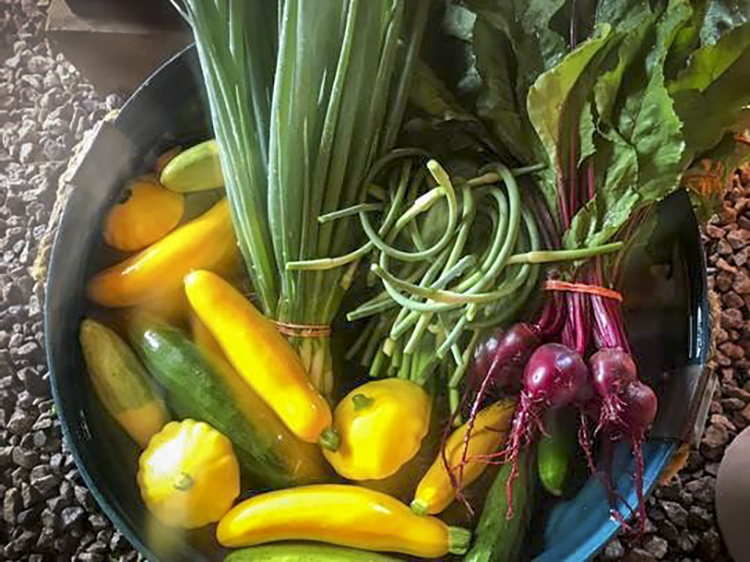
This week, we’ll also try to seed oats and field peas on vacant fields in the hope of catching a thunderstorm. Our last rain was on June 11, and all crops need a drink right now. But as you can see in the above picture taken on Sunday, despite the lack of rain, crops continue to thrive in our rich soil. Our low backs are about to get a serious workout bringing in the summer squash. Everybody, do your sit-ups!
Your Farmers


